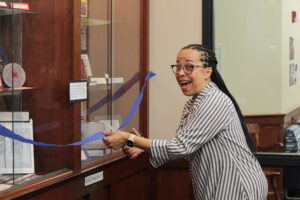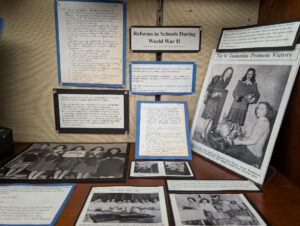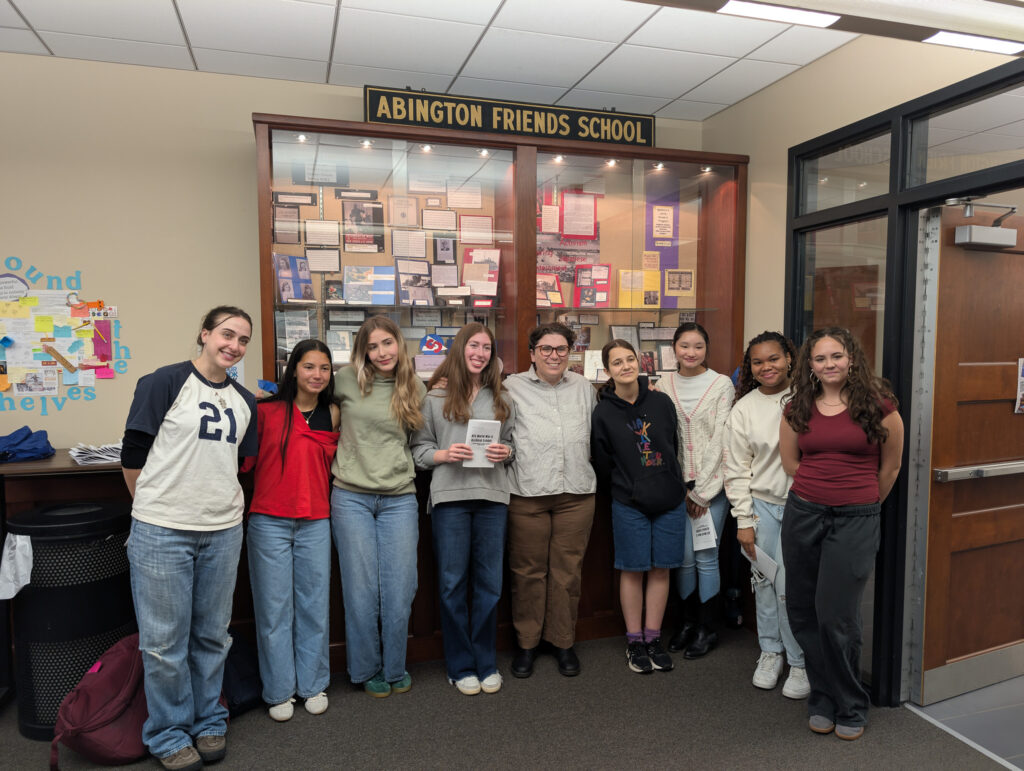In a powerful blend of archival discovery and investigative research, students in History II Honors have brought new light to Abington Friends School’s history during World War II. Guided by themes and questions from librarian and archivist Toni Vahlsing, students worked in small groups to explore underexamined moments and stories from the era.
Their research spanned a wide range of topics—from Japanese friendship dolls sent to a student by a peer in an internment camp, to the story of a 4th grade teacher who left AFS to serve in the Navy’s Women’s Accepted Volunteer Emergency Service (WAVES). Other projects explored shifting beauty standards among students and how Quaker values informed decisions around conscientious objection to the draft.

“My group was surprised by the difference in responses to World War II inside and outside of the school,” remarked Helene Mogul ‘27. They found poems from the AFS literary magazine in the 40s commenting on and lamenting the war, but at the same time found adverts to buy war bonds in the back of a yearbook. “It goes to show how even Friends schools of the time struggled to live their pacifist values during times of crisis.”
Other students found that after the U.S. entered the war, the curriculum at AFS changed rather sharply. “PE shifted from games to strength training and obstacle courses,” one student reflected. “Math focused more on skills applicable in the navy, such as navigation and engineering. Chemistry focused on combustion.” Other saw that, due to rationing, many events were cancelled such as AFS’s annual dance with Germantown Academy, and carpooling emerged as an alternative mode of transportation when gasoline shortages challenged parents.
 “It’s not exactly the same, but it does make me think of the disruption in COVID years,” remarked Helene, comparing it to the year of online schooling and health anxiety that began in 2020. “I guess even 75 years later, we still share some experiences.”
“It’s not exactly the same, but it does make me think of the disruption in COVID years,” remarked Helene, comparing it to the year of online schooling and health anxiety that began in 2020. “I guess even 75 years later, we still share some experiences.”
With persistence, creativity, and academic rigor, these students reached out to external institutions, corresponded with experts, and dug deep into our own archives to answer difficult questions. Their work not only enriches our understanding of AFS history, but also honors the legacy of those who lived through an extraordinary time.

